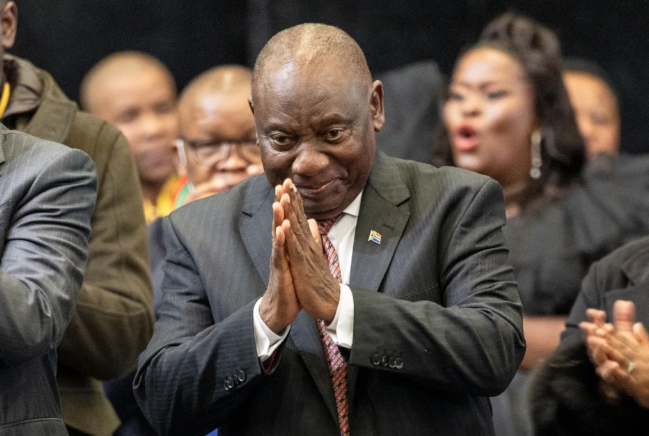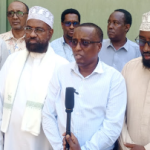South Africa’s Cyril Ramaphosa is set to be sworn in as president at a ceremony in Pretoria on Wednesday, following a government coalition deal struck by his weakened African National Congress (ANC). Last week, lawmakers voted overwhelmingly to re-elect the 71-year-old after a May 29 general election failed to produce an outright winner.
Expressing his gratitude, Ramaphosa told parliament on Friday, “It will once again be a privilege and a pleasure to serve this nation.”
The official inauguration of his second five-year term will take place on Wednesday at the Union Buildings, the seat of government, before MPs, foreign dignitaries, religious and traditional leaders, and others.
According to the presidency, nearly 20 heads of state and government, including many from neighboring nations, are expected to attend, with additional confirmations still coming in. Notable countries represented at a high level include China, Egypt, Cuba, Zimbabwe, Angola, and the State of Palestine.
The ceremony will feature music and artistic performances, a 21-gun salute, and a fly-past by the air force. Ramaphosa will be sworn in by Chief Justice Raymond Zondo, head of the constitutional court, followed by an inaugural address.
It will mark Ramaphosa’s third time taking the oath, with his journey to power marked by tumultuous political shifts. His ascension to the presidency in 2018 came amidst the fallout of corruption allegations against his predecessor, Jacob Zuma, who was compelled to step down before the end of his term.
Ramaphosa’s initial appointment was followed by a re-election for a full five-year term in 2019. In South Africa’s electoral system, voters elect the parliament, which then votes for the president.
Promising a “new dawn” for South Africa, Ramaphosa launched anti-corruption initiatives and initiated reforms to address the country’s energy crisis. However, his tenure has been marked by economic challenges, including power cuts, rampant crime, and a rising unemployment rate of 32.9 percent.
In the May elections, the ANC faced a significant setback, winning only 40 percent of the vote, a considerable decline from its previous 57.5 percent. Losing its absolute majority in parliament for the first time since 1994, the ANC was compelled to seek coalition partners to maintain its hold on power.
Forming a national unity government with several other parties, including the Democratic Alliance, Inkatha Freedom Party, Patriotic Alliance, and GOOD party, the ANC managed to secure Ramaphosa’s re-election, fending off a challenge from Julius Malema. Ramaphosa is expected to announce his cabinet shortly after his inauguration as discussions with coalition members continue.



